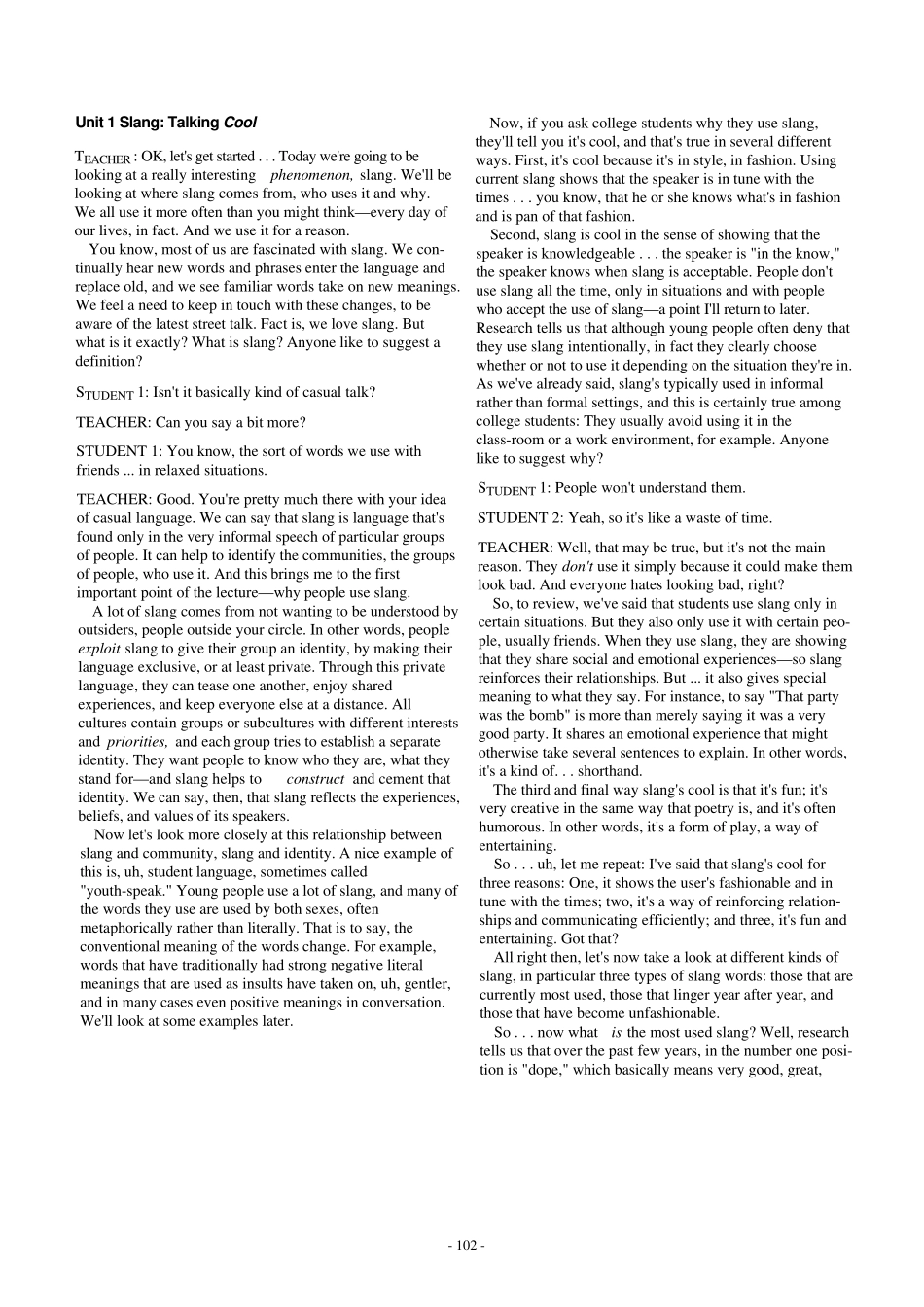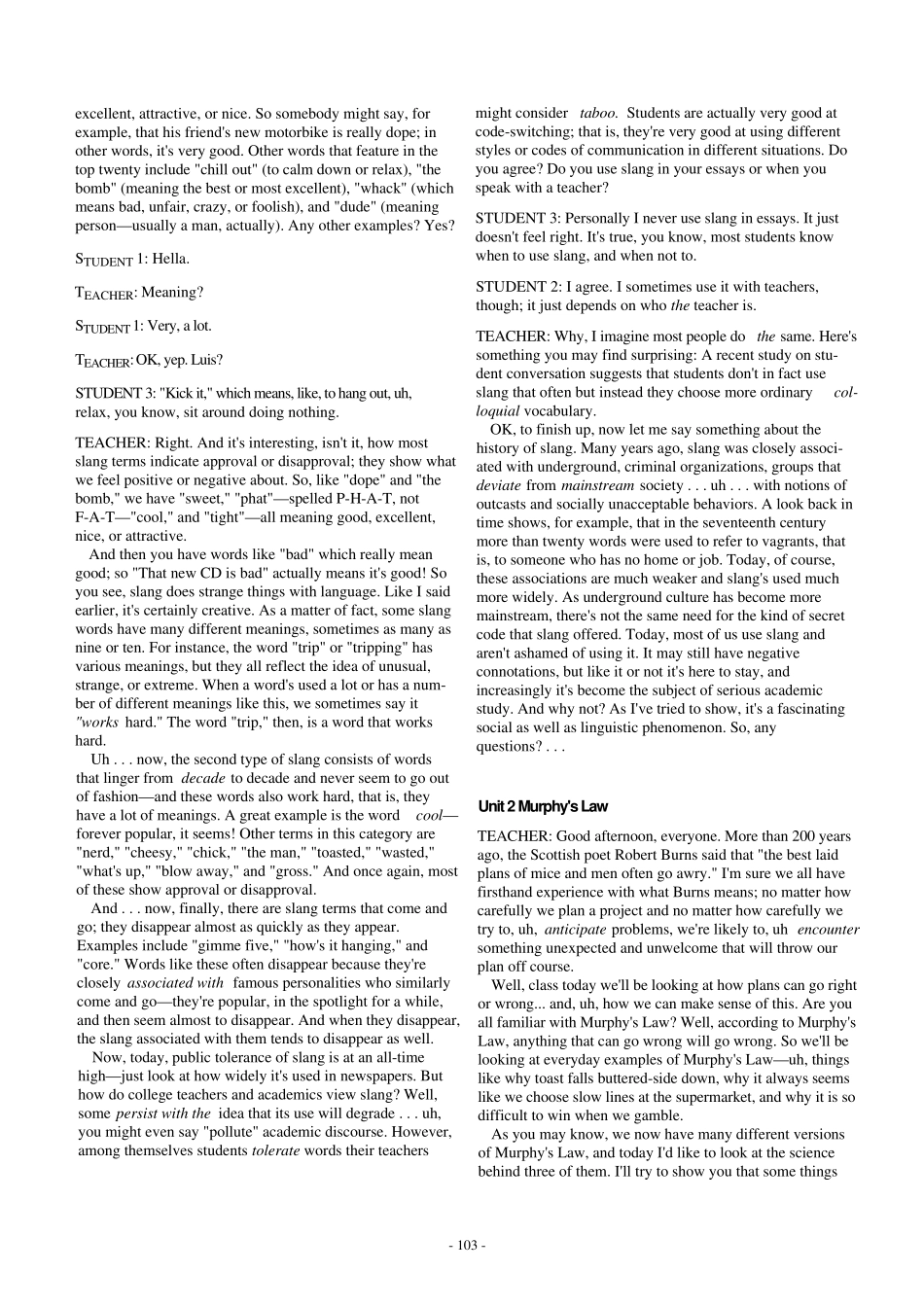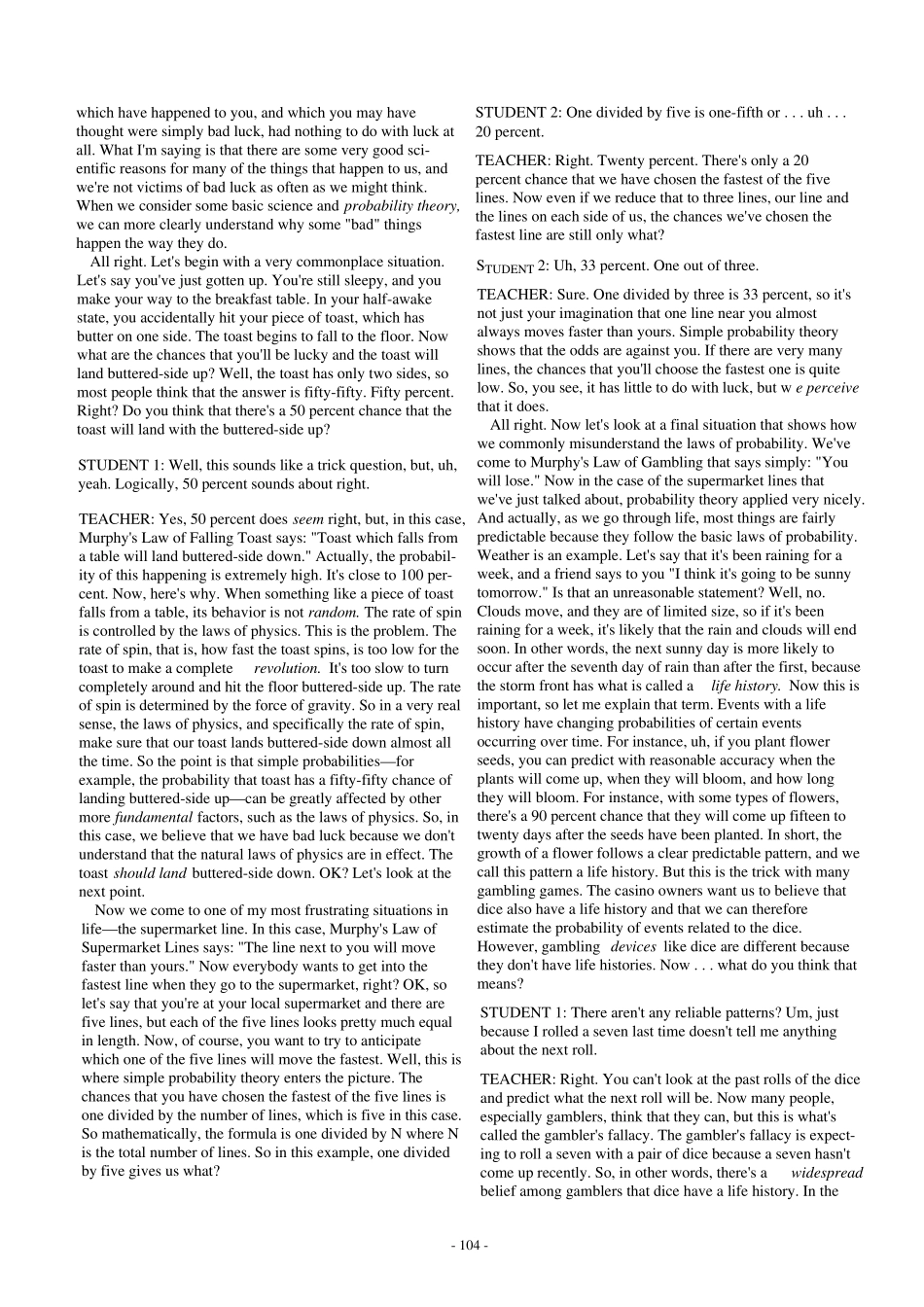- 102 -Unit 1 Slang: Talking Co o l TEACHER: OK, let's get started . . . Today we're going to be looking at a really interesting phenomenon, slang. We'll be looking at where slang comes from, who uses it and why. We all use it more often than you might think— every day of our lives, in fact. And we use it for a reason. You know, most of us are fascinated with slang. We con-tinually hear new words and phrases enter the language and replace old, and we see familiar words take on new meanings. We feel a need to keep in touch with these changes, to be aware of the latest street talk. Fact is, we love slang. But what is it exactly? What is slang? Anyone like to suggest a definition? STUDENT 1: Isn't it basically kind of casual talk? TEACHER: Can you say a bit more? STUDENT 1: You know, the sort of words we use with friends ... in relaxed situations. TEACHER: Good. You're pretty much there with your idea of casual language. We can say that slang is language that's found only in the very informal speech of particular groups of people. It can help to identify the communities, the groups of people, who use it. And this brings me to the first important point of the lecture— why people use slang. A lot of slang comes from not wanting to be understood by outsiders, people outside your circle. In other words, people exploit slang to give their group an identity, by making their language exclusive, or at least private. Through this private language, they can tease one another, enjoy shared experiences, and keep everyone else at a distance. All cultures contain groups or subcultures with different interests and priorities, and each group tries to establish a separate identity....


